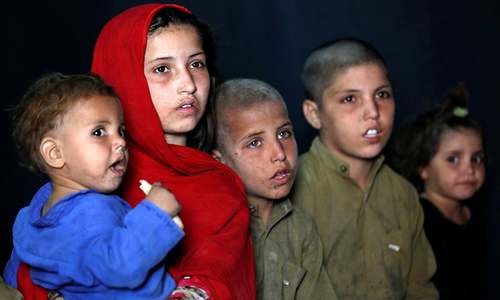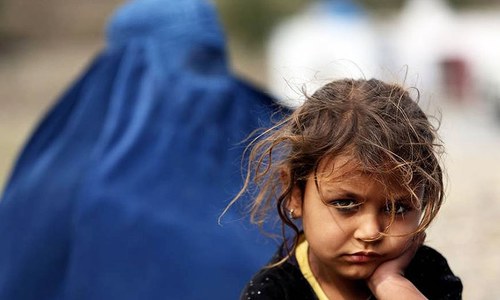
On Jan 27, 2017, United States President Donald Trump issued an executive order that banned citizens from seven Muslim countries from travelling to the United States. The countries included in the 90-day ban were Iran, Iraq, Yemen, Somalia, Syria, Sudan and Libya; all refugees from Syria were banned indefinitely. The ambiguously worded ban did not clarify whether legal permanent residents (green card holders) were included in the ban on entry.
According to news reports, the Trump White House departed from usual protocol in not informing either the affected countries or even the president’s own justice and homeland security departments that the ban was coming. US border officials who would be enforcing the ban did not know about it until President Trump had actually signed the document.
Examine: Trump’s arbitrary ban on Muslim refugees sets a cruel and chilling precedent
What happened in the days after the ban was instituted has been seen by the world. Since the night the ban was passed, crowds of protesters have gathered outside US airports holding signs and banners welcoming immigrants and refugees. The American Civil Liberties Union filed and won injunctions whereby judges barred border officials from enforcing the ban and from deporting those who had valid visa documents. Teams of lawyers have gathered at most major US airports to provide legal representation to those being detained in violation of judicial orders.
It is impossible to imagine crowds of Pakistanis standing at airports to welcome Christian refugees.
In New York, congressional representatives waited for hours until all detainees were freed. By Sunday evening, the White House and the Department of Homeland Security seemed to be backtracking on parts of the order, stating that it may not apply to those holding green cards. It was unclear, however, whether the language of the original executive order would be altered to reflect this new interpretation.
Internationally, the outcry in the US was also seen in Europe. Protests were held in many European cities over the weekend, expressing solidarity with immigrants and refugees and with the protesters standing in support of them in the US.
The Canadian prime minister issued a statement condemning the ban and offering temporary emergency refuge to those that the US was turning away. A large protest occurred on Monday in front of the British prime minister’s residence at 10 Downing Street, with protesters demanding that she condemn the order. Even Israelis came out on the streets of Tel Aviv to protest America’s Muslim ban.
Here is who did not care. On Sunday, President Trump called several world leaders. This included, among others, the king of Saudi Arabia. The press releases issued following the telephone call said that the two leaders had talked about creating a safe zone in Syria for those displaced by the war. They did not talk about the Muslim ban that Donald Trump had just instituted in his own country. If the issue was raised, neither official Saudi or American sources said anything at all about it. It was as if the events of Friday, the innocent people detained at US airports for hours, the crowds supporting them, the outcry and outrage around the world had just not happened.
The contrast raises a question that few in Muslim countries wish to consider. It reveals first and foremost how self-serving some of the richest and most influential Muslim countries are. Even as ordinary Americans were braving extreme cold temperatures to protest what they saw as gross injustice, Muslim rulers did not seem to consider the issue worthy of attention. Americans were concerned about the principle behind the issue, the fact that discriminating against people based on their religion and national origin was not something they could permit in their name. Immigrants coming out of the secure areas of US airports into the arrivals lounge found huge crowds of strangers cheering them on.
While Pakistanis have not currently been included in the list, it is quite possible that they may be added. This will impact all Pakistanis who are currently studying, receiving medical training and working in the US. That the ban is discriminatory, and particularly so against Muslims, is obvious. It is also true that many hundreds of thousands of innocent Muslims will pay the price. It is likely that Pakistanis will be among them. Students and scientists and all those who constitute the ranks of white-collar workers that Pakistan exports will feel wronged.
Theirs will be a legitimate claim; after all, discrimination based on religion is always wrong, regardless of which country resorts to it. Yet even as Pakistanis may believe in this premise when it comes to the US and Western countries denying them visas, they are unwilling to take a stronger stand on the same issue at home.
If one terrorist Pakistani does not make all Pakistanis terrorists, then it may also be true that not all Israelis are opposed to a free and independent Palestinian state. Yet Pakistanis are unwilling to consider this fact or have any opposition to the fact that no Israeli citizen (even if they are Muslim) is permitted to enter Pakistan.
On the same note, it would be impossible to imagine a similar number of Pakistanis standing at airports or border posts to welcome Christian refugees or even Afghan refugees.
The dissonance between what Muslims in general and Pakistanis in particular expect from the US and the West overall and what they are willing to do in their own countries deserves immediate and urgent attention. If religious discrimination is always wrong and the cruelties imposed on the borders of others undue and unwarranted, then so too are those we impose ourselves.
Hatred, whether it appears at home or abroad, is the same venomous beast; the constrictions of borders and the imposition of bans based on generalisations is always wrong, not there or here, but quite literally everywhere.
The writer is an attorney teaching constitutional law and political philosophy.
Published in Dawn, February 1st, 2017













































